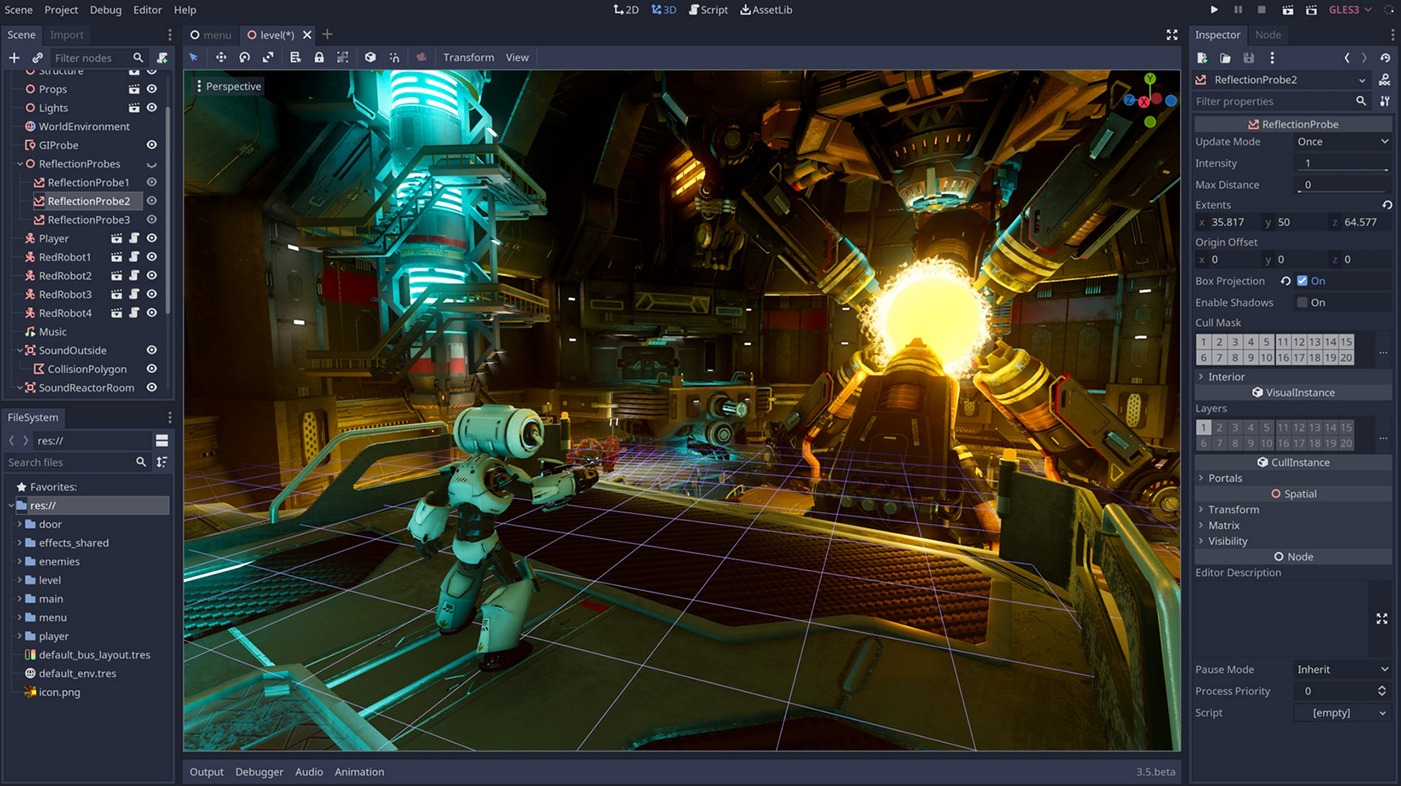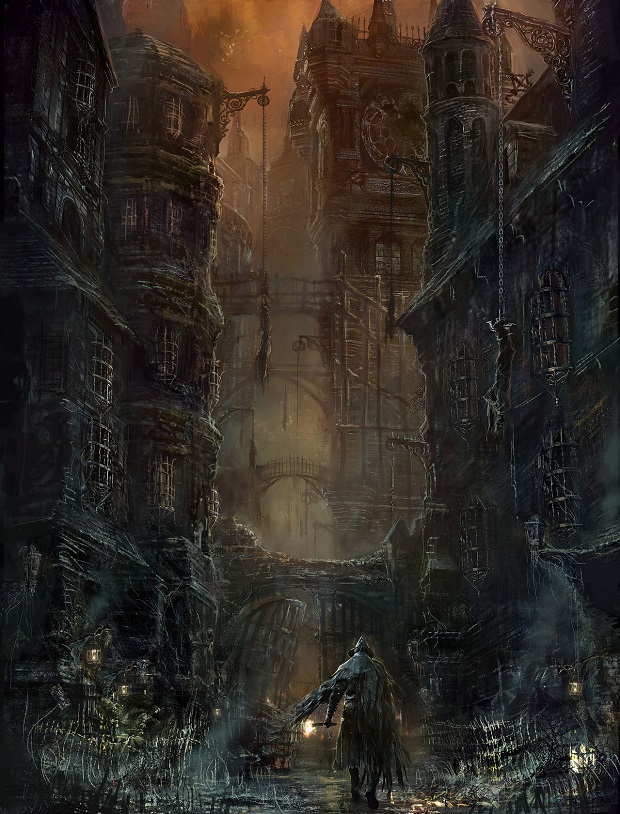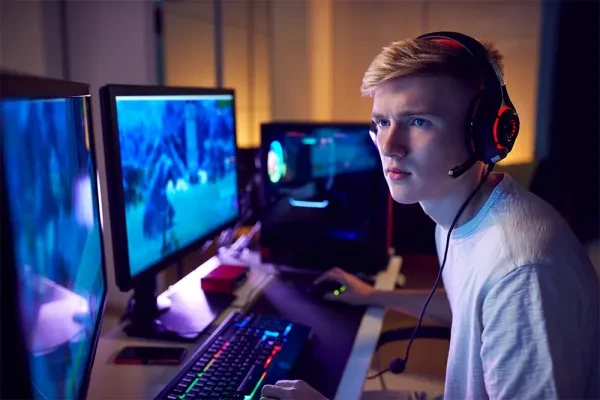
Do you have an interest in game design? Are you looking to learn more about it? Are you interested in following a career as a game dev? So stick with me for this curated list of amazing books on the topic that will make you see video games from a whole new perspective.
This top 15 list contains everything from inspiration for character design to serious research about the role of video games as a new type of media. Read through it and you’ll get to know the point of view and inspirations of different masters of the business, from the mechanical to the artistic. Surely there’s something here for everyone who loves game design as much as I do.
15. Dungeon Master’s Guide Core Rulebook II (Dungeons & Dragons 3rd Edition)
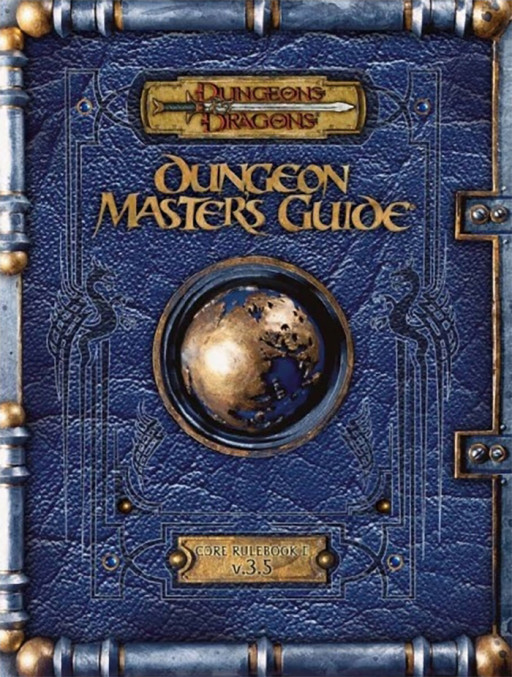
Woah, that name is a bit of a mouthful, right? So why am I starting this list with a tabletop RPG rulebook? Well, let me tell you a quick story here that maybe you’ll relate to.
In the early 2000s, lots of little nerdy kids got into tabletop RPGs. This was a great time for video games too, with many incredible titles coming out. To many of these kids, the first real look into a game, rather than just as something to be played, but as something to be made, came with their teenage sessions of tabletop gaming.
Many of these kids who then grew up and studied graphic design, programming, or even literature had their first creative sparks during this era. Some of my friends who work as designers today began forming their notions of design with this book.
The creative tools provided by this book teach us important pointers to this day: if you don’t make a fun game, the blame is on you. You’re the one responsible for creating a fun experience, and if you want to be either a DM or a game dev, you must realize what it means to value the user experience of your project. This is true not just for tabletop, but for pretty much anything that faces the public.
Ultimately, tabletop gaming taught many of us the importance of a player-centered game design. The effects of this perhaps can be seen in the design philosophy of many of the authors in this list, and that’s why this is my first recommendation.
- Served as inspiration for countless designers
- Player-centered approach
- A classic of tabletop RPGs
14. Masters of Doom: How two guys created an empire and transformed pop culture
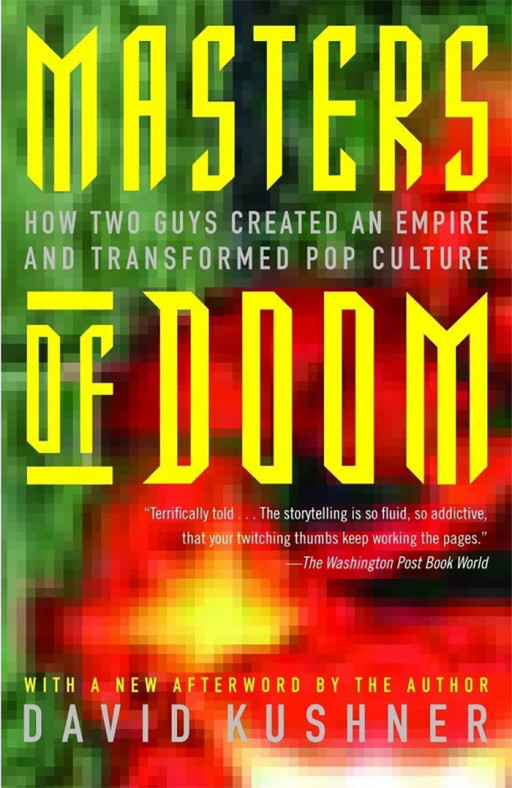
If you were a gamer at all during the late 90s, you absolutely must have heard of DOOM. First released in 1993, it pretty much solidified the genre of the First-Person Shooter (FPS). In fact, the fellows at id Software pretty much invented the genre.
This isn’t a technical treatise, it’s a biographical retelling of some of the most well-known guys in the video game business. This book tells a compelling and personal account of two kids who grew up with classical arcade games and tabletop RPGs and turned their passions into one of the most successful video game series ever.
This is relevant for anyone with an interest in video games, really. The story of some young devs selling their games via mail order and turning them into a media phenomenon is frankly out of this world. The success of DOOM can be directly attributed to its great design and the moral panic it caused in 90s America. I think that lasting impact is the hallmark of great design, have you ported DOOM to your toaster yet?
The other moving side of the story, how the two creative leads had a falling out during the making of Quake gives us a counterpart to the tale of their meteoric ascension. It provides an interesting and human side of a success story in which things aren’t as seamless as they seem to the public. All in all, I think this is a great read for people interested in the history of gaming and the video game industry.
- Biographic tale of two of the most famous developers
- Focused on a real indie success story
- Interesting and easy to pick up
13. Dark Souls: Design Works
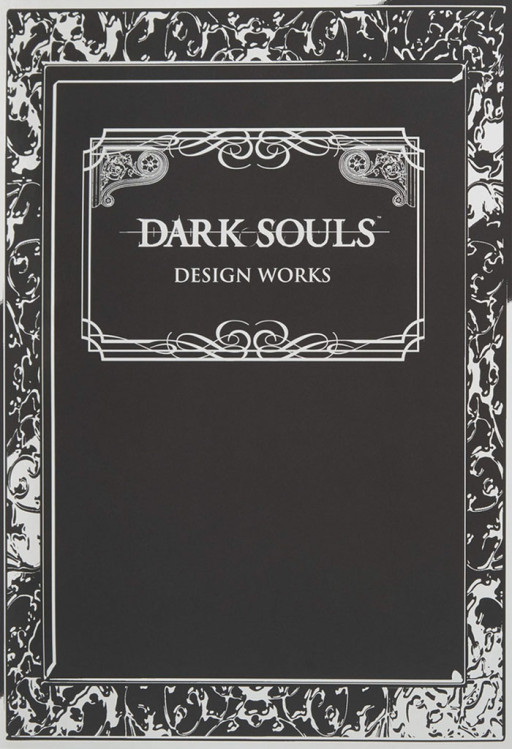
Dark Souls was a breath of fresh air for Action RPGs. It was so influential during the 2010s that it changed the direction of pretty much anyone trying to make games in that genre. Dark Souls was a notoriously difficult game that didn’t apologize for its difficulty. It created a loyal fanbase amongst self-styled hardcore gamers. The sustained success of From Software proves that the minds behind their works are sharp and knowledgeable in design.
This book is simply a goldmine for people who work or want to work as character designers or even level designers. It’s filled with original concept art of the project that sometimes shows the iterative process behind the major characters and areas of the game.
Dark Souls isn’t a hit just because of how solid its mechanics are, it’s also a hit because of the incredible atmosphere and aesthetics of the game. You can’t just come up with something like this, it’s a dedicated process that requires talented artists and designers.
So this recommendation is partly due to my respect for the team that made this game. Ever since I played it in 2012 the haunting aesthetics of the title have stayed with me. The somber atmosphere broken by small moments of hope provides a very moving thematic element that just keeps you playing.
To me, that’s the mark of solid design. And this is what you can glimpse in this book, the process and concept art behind this title, so that’s why it's on my list.
- A goldmine of inspiration for character design
- Shows concept art iterations you could learn from
- Hosts interviews with From Software devs
12. The Works of Fumito Ueda: A Different Perspective on Videogames
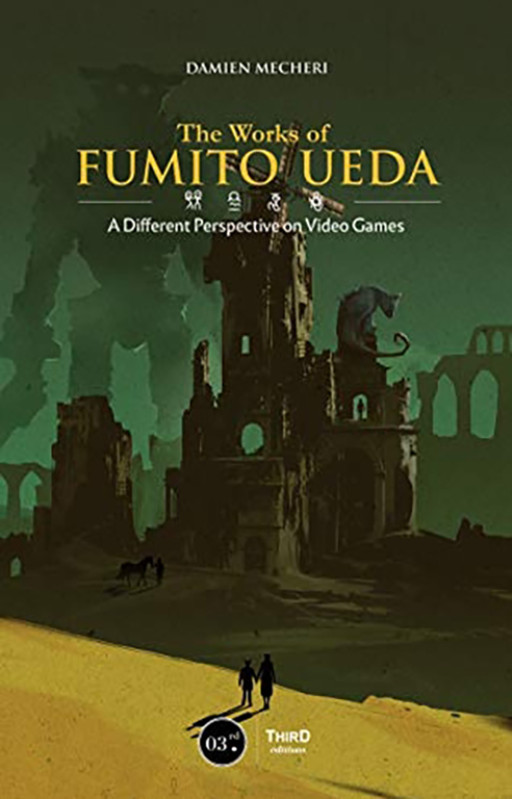
Fumito Ueda is the creative mind behind Shadow of the Colossus, The Last Guardian, and the cult hit Ico. While his body of work isn’t as large as some of the other names on this list, all of his games have won many awards and are beloved by the people who played them.
Shadow of the Colossus was huge in the PlayStation 2 era, the sense of beauty, of unbound adventure that it gave us back then was unique. And yet there is something sad about the world, about the tragic story with which you interact. After all these years I still look back on it as an absolutely unique experience.
This book isn’t shallow, it goes deep into the influences, the life, and the design principles of Fumito Ueda. It explores his concept of Subtractive Design, which to me is familiar when you hear Hideo Kojima talk. I have the impression it’s a very Japanese design mindset, and it works.
This isn’t a graphic design book, though. It’s almost entirely text, and I’ve seen some people who bought it expecting a different experience, so be aware of this. However, the tone is very respectful toward Fumito Ueda, you can get the sense the author really admires him. That gives the book a sense of confidence that I like.
If you want a deep dig into both the artistic side of game design and the mindset and process of Japanese design, this is a very good read, and this is why I recommend it.
- Profound analysis of the inspirations of a famous designer
- Focus on the artistic side of video games
- A look into Japanese game design
11. A Pattern Language: Towns, Building, Construction
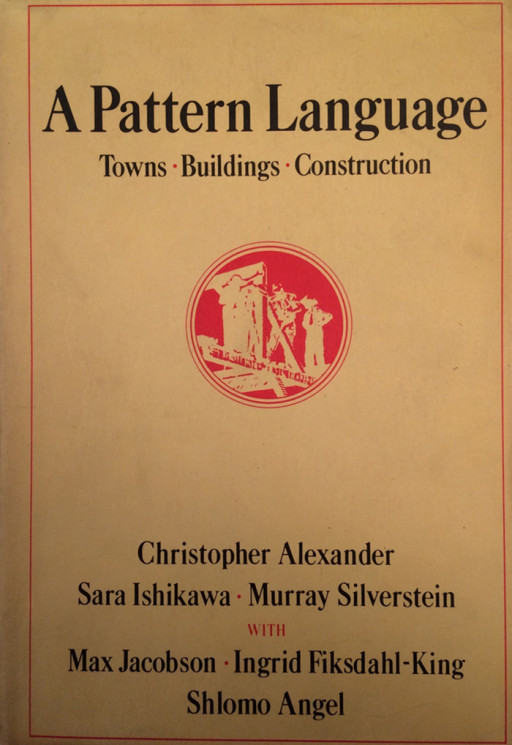
Alright, you must think there’s something wrong with me for putting an architecture book on this list. After all, what does this have to do with games? Well, pretty much everything, really.
I learned about this book by listening to some talks given by Will Wright, the industry giant behind long-lasting series such as The Sims and SimCity. If you know these games, and you likely do, I think you can see why this book is on the list.
Will Wright has named this book as one of the leading inspirations for the design philosophy of these series, and with the growing popularity of titles that include construction, like Rust or Factorio, I think the original inspirations for this type of game are really important.
After all, this is a book about designing spaces for people to live in, and isn’t this a big part of Open World games? So that’s another reason why I think it’s important for designers.
This book is quite technical but carries a very interesting message: “Towns and buildings will not be able to become alive, unless they are made by all the people in society, and unless these people share a common pattern language, within which to make these buildings, and unless this pattern language is alive itself.”
That’s some heavy stuff, right? It’s what you can expect from this book. It’s pretty serious in tone, but I see how you can come up with amazing ideas using this as an inspiration. However, it’s a long and wordy book, so be aware of this if you’re planning to get it. It’s not light afternoon reading, but it gets my recommendation anyway.
- Inspired some of the best-selling series ever released
- Design wisdom can be applied in many different areas
- Useful for perfecting open worlds and building games
10. Spelunky (Boss Fight Books Book 11)
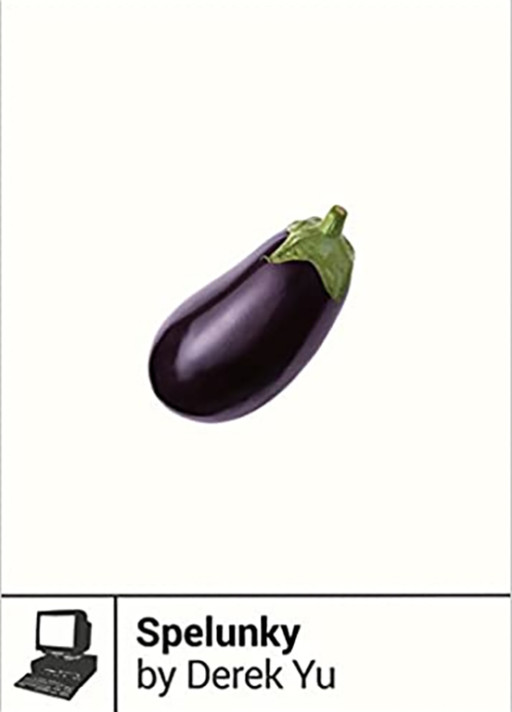
Derek Yu’s Spelunky was an unexpected success released way back in 2008 but became a solid name in the Roguelike genre after its 2010s many re-releases on different platforms such as PC and Xbox. Pretty much everyone serious about Roguelikes has played this game.
In fact, Spelunky is often talked about as a genre saver for Roguelikes, or perhaps even the first example of what people call a “Rogue-lite.” Its lasting success amongst players of indie games has certainly served as the motivation for many similar one-man projects that have become famous in the indie world.
This book is an account of the development of the game by Derek Yu himself, it’s a book written in the first person and discusses the entire process of the game. It starts by talking about the stormy definition of Roguelikes and covers Derek Yu’s inspirations and the start of the development process.
It’s then divided into chapters named after the major milestones and releases of the game, how it went big, and how it became more professional after its beginning as a simple one-level project in GameMaker. It kind of feels as if you get to know Derek Yu through this book.
So, in short, if you’re interested in indie development, Roguelikes, or just the person of Derek Yu, this autobiographical account surely holds a lot of wisdom that’s important for aspiring indie devs.
- A personal tale of the dev who spawned the Roguelite genre
- Important advice for potential indie developers
- A direct look into one of the most influential Roguelikes
9. Persuasive Games: The Expressive Power of Videogames
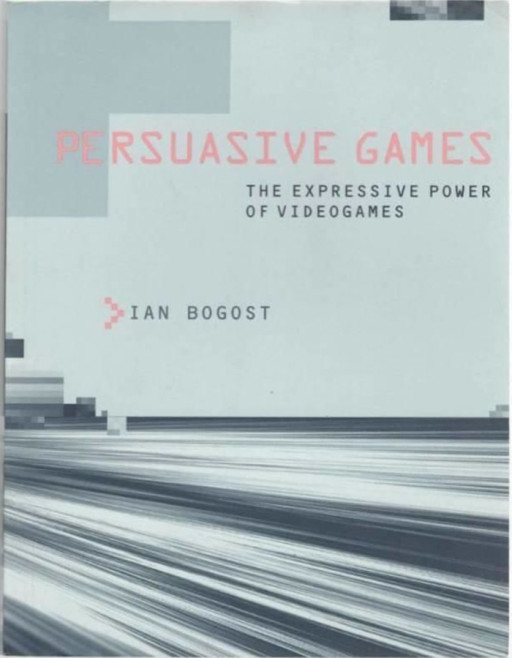
Ian Bogost is an academia guy, he’s a decorated professor at the Georgia Institute of Technology and covers mostly the communication, social, and media aspects of video games.
This is what you can expect from this book, it’s an academic dive into the power of video games as a form of communication. The book talks about the history of new media and the process of video games becoming a mature form of communication like cinema did.
You’ll find the idea of what the author calls “procedural rhetoric,” a way to convince and communicate based on interaction with a system. This arises out of the nature of video games as software, encoded in a digital machine. The specifics create something entirely different from movies or books but which holds the potential to be just as relevant.
It’s going on my list because it’s interesting to see video games are more than “trifles,” as the author says. Many of the most successful franchises, like the Metal Gear series, have relied on a cinematic approach to video games, but are well regarded exactly because of their engaging gameplay and interesting plots. To me, that’s what Ian Bogost is talking about in this book.
- Serious academic research on video games
- Useful for those interested in the media side of games
- Amazing source for people who want to build games with a message
8. Tabletop Design for Video Game Designers
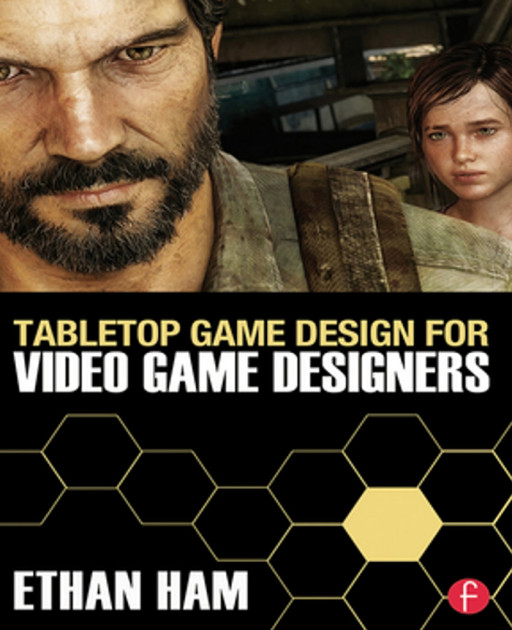
Ethan Ham is an associate professor at Bradley University, and in this book, he wants to teach us about game design through practice. It has the overall feel of a textbook, with direct examples and easy-to-follow definitions.
What’s great about this book is that it offers printable examples of games you can play to explore the concepts in each chapter. It’s also really well divided and clear, offering a good foundation for pretty much everything required for a turn-based game.
It uses the easy visualization of tabletop games to explain how their design elements can be used in game development in general, and it’s a great starting point if you haven’t experienced the workflow of creating a game before.
What’s also really cool is that the book contains a playtesting-centered approach, which is why it has printable examples. This is a great introduction to the very iterative process of game development. It gets my recommendation for being well written and easy to follow for beginners.
- Very easy to follow format
- Accessible for beginners
- Offers tangible exercises in game design
7. Programming Game AI by Example
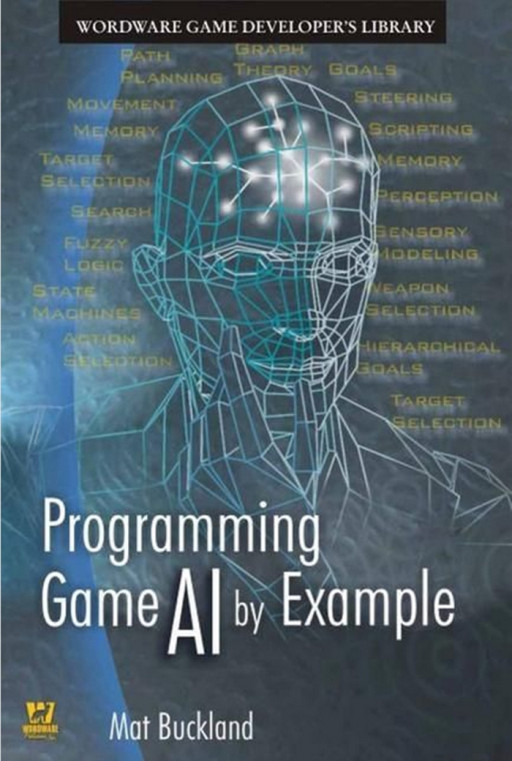
This is a recommendation to the people out there with a background in programming who want to leap into game design and development. This book is a bit old, but when you ask around what’s the best book to teach you about video game AI, this one is always mentioned.
If you’re a more math-focused person or just into programming, this book provides an amazing source for everything AI-related for video games. It’s long and technical but if you’re looking for something that can teach you approaches to AI that work, this is a must-read.
I think poor AI is often the number one complaint I see in video game forums and player reviews. This is why I thought this book had to be on the list: if you plan to release a game, you won’t want buggy, poorly-implemented AI giving you bad press.
It’s hard to break it down for you folks because this book covers just so many areas of video game AI programming. If you’re working on something related to AI right now, I’m pretty much sure you’ll find something in this book that will help you a lot.
This book pulls no punches, either, it’s extremely direct and to the point. I have to say, reading this gave me the impression that Mat Buckland is a real engineering type of guy, he certainly knows his stuff.
Programming, in general, is a fascinating topic, and having skills as a programmer is extremely important if you want to make it as a dev or designer. So it’s really cool to read such a consistent and quality book on the topic.
- One of the key titles on video game AI
- Incredible technical depth
- Covers almost everything you need to make a videogame AI
6. Situational Game Design
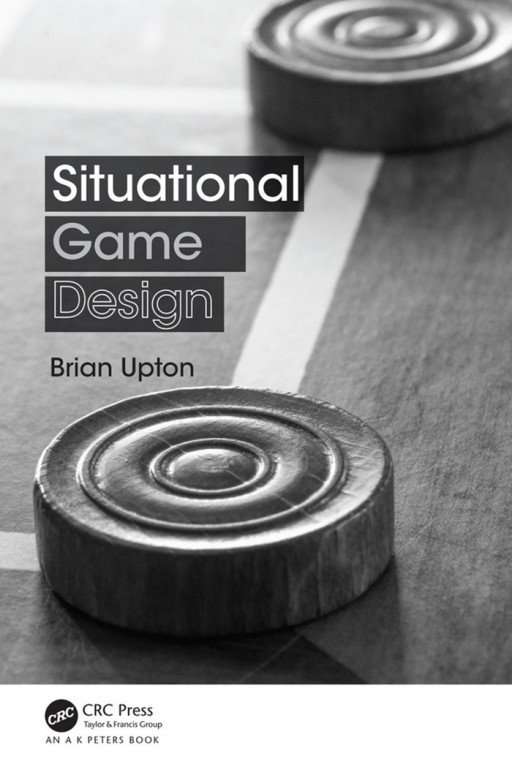
This book picked my interest because Brian Upton is a real old-timer. He’s the guy behind the design of the original Rainbow Six and Ghost Recon titles. He’s worked in a lot of high-profile places ever since, so I just had to check out what his approach to game design is.
I rank this book so high on the list because it’s clear and concise, it explores many of the aspects of making a game: the restrictions put upon players, the different moments of tension, and the psychological aspects of different types of gameplay.
It’s not as technical as some other titles on this list if that’s what you’re looking for. But it’s a pleasant read that lets you pick the brain of a very experienced name in the industry. It’s not really a step-by-step guide, but it’s the sort of thing you’d want to read if you’re struggling in turning an idea into a fully realized game.
I admit that I like this book’s perspective. It develops itself with an entirely player-focused premise. Situational Design, according to this book, revolves around the embodiment of play. It builds the internal experience of the player as the underpinning principle with which to design a game. This perspective is well communicated and explained throughout the book, so it’s not at all hard to follow.
This book goes on my list because sometimes aspiring devs finish a prototype and realize it’s just not fun to play. Why? Well, I think learning this player-centered perspective can help you figure it out.
- A tried and true perspective of an industry old timer
- An important analysis of the experience of gameplay
- An innovative and creative way to approach game design
5. Theory of Fun for Game Design
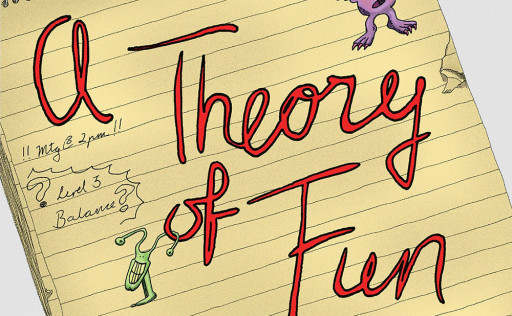
This book is high up on the list because it’s a very popular title about game design. It’s really well written, too. What I like the most about this book is that it feels like there’s a master craftsman sitting right across from you telling you about his craft, but the craft is video game development. From a personal aspect, I empathize with it.
Raph Koster is another guy who knows his stuff, too. He’s better known for being the designer behind Ultima Online, the game that pretty much launched MMOs into mainstream relevance and opened a whole venue of gaming that’s everywhere nowadays. He’s been active in the industry ever since and is a respected figure overall.
This book seems to focus a lot on the psychology of gameplay. I could perhaps say that’s the main point of the book. Raph Koster talks a lot about the human brain, how it functionally learns new patterns and how games play right into our amazing capacity to recognize and use patterns.
The opposite of a heavy technical book, this title is a surprisingly pleasant read that offers us a deep and heartfelt look into what games mean. At times, it feels like it taps into some underlying higher truth about the nature of gaming.
I have to say I also really enjoy the design of the book. The illustrations and personal tone of the text really make you feel like you’re reading the scribbled notes that you find on an experienced designer’s table. Perhaps that’s how this book came to be.
I could see a creative designer getting a lot from this book, but it’s more of a delve into the psychology of games and how that affects us than a manual of game design, so be mindful of that if you get it.
- Deep-level analysis of what constitutes a game
- Rich in the psychological and cognitive aspects of gameplay
- A heartfelt and personal tone makes for a great read
4. Game Balance
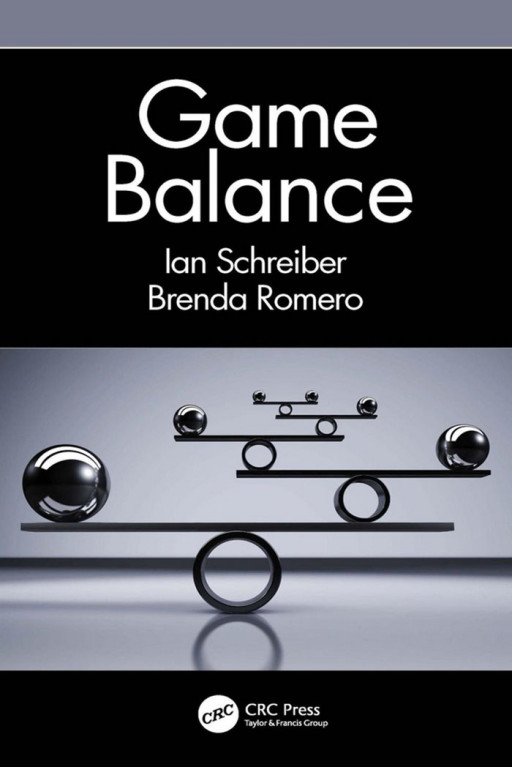
Brenda Romero is another big name in the industry, she’s won multiple awards in the past, and is the designer behind the 2001 title Wizardry 8, a very solid addition to the RPG genre which is bursting at the seams with creativity.
The hardcore enjoyers of CRPGs are still talking about this game and reviewing it today, over twenty years from its release. I repeat that longevity is the mark of good design, and after watching some of Ian Schreiber’s online talks where he introduces his course on game balance, I just had to check this book out.
Balance is a notoriously hard-to-define concept, and quality assurance in video games is already a thorny topic in itself. But this book offers a wealth of quantitative analysis with which to understand its concepts. It has deep and detailed chapters on a lot of mechanical elements common to games that can be analyzed with the tools it provides.
This book is relatively new, and it’s great to see a fresh and knowledgeable perspective in this area. This game expounds on topics that sometimes appear small, but the mathematical analysis together with very relevant advice drives home that nothing this book talks about is trivial.
This book earns its place on the list by being a very qualified exposition on topics that can appear nebulous when you’re considering how to design a video game. It’s hard to find something that can clarify non-obvious issues that pretty much every game goes through.
- An interesting technical title that explains difficult areas of development
- A wealth of mathematical tools for quantitative analysis
- A fresh and serious approach to balance and QA
3. Game Design Workshop: A Playcentric Approach to Creating Innovative Games
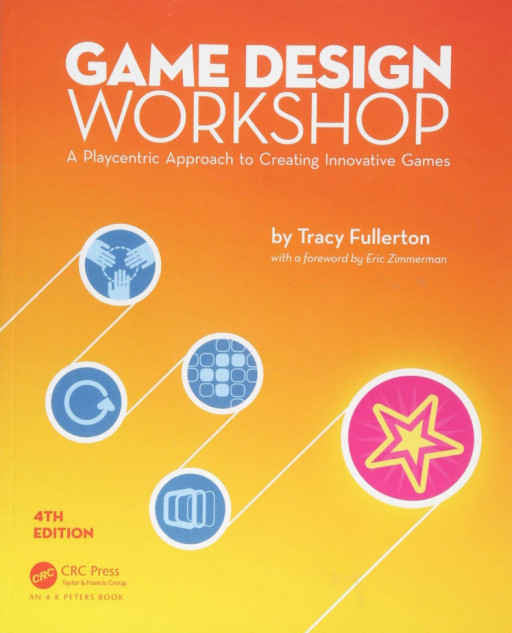
Tracy Fullerton is the director of the games program at the University of South California, where she is also a professor. She’s also a very big name in the indie game world. She’s won multiple awards and is generally recognized as an important voice. She is the developer of the beautiful and inspiring 2017 title Walden, a game based on the life of philosopher Henry David Thoreau.
This book isn’t just some philosophy rumination, though. It’s quite straight to the point and can offer you some help in any part of the development process. The book is divided into three parts, all of which go into great depth about the different aspects that you’ll encounter as a designer and developer. It covers areas such as the mechanical meat and potatoes of what makes a game, but also more design-focused topics such as conceptualization and the process of turning an idea into a product.
What I really like is Part 3, because it deals with the actual day-to-day reality of the gaming industry. What it provides is practical advice that goes way beyond just design concepts. It will tell you about working with teams of developers and publishers. It tells you the structure of a video game company. It almost walks you through the whole process from the perspective you’d get from someone showing you around on your first day at a new job.
Tracy Fullerton’s qualifications as a professor show in this title, too. Soft skills, they call them, I think the author understands their importance. I feel this is the type of book you could build an entire course around. That’s the level of depth that you can expect out of this one. So if you’re looking to learn, this is probably one of the best starting points out there.
- Enough content to build a course around
- Teaches about day-to-day experiences of devs
- Direct and concise, offers practical and useful advice
2. Level Up! The Guide to Great Video Game Design
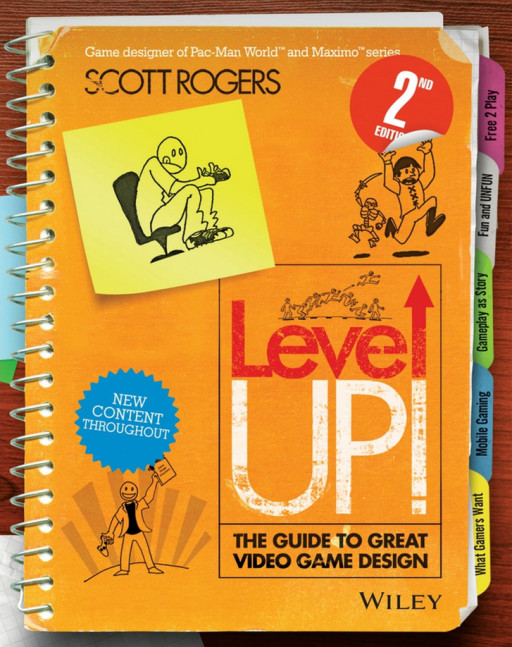
This earns its place on the list for a couple of reasons. First, it’s incredibly popular with people who work with making games. Like the previous title, it’s often what you hear people recommend outright when you ask them what you need to learn game design.
What makes me look at this book as an authoritative source, besides its popularity, is that Scott Rogers is incredibly experienced in the industry. Seriously, search this guy up if you don’t know him, he’s worked everywhere, I can’t do him justice in these short lines.
The author’s experience shines through the book. The tone of the book rarely overcomplicates stuff, but still explains them very well. From the history of video games to the most basic concepts, this book starts on an easy note and is welcoming to newcomers.
The structure of the book with “levels” rather than chapters is easy to pick up for people familiar with games. The book has a step-by-step approach that introduces ideas gradually, from what each member of a development team does up to advice for pitching a project to a company.
The “level” that focuses on writing a design document stands out, too. It’s pretty much a walkthrough on how to write a good design document for a videogame. It introduces the topic well and it’s exactly what I would need if I had to learn how to write a design document.
I must say that I quite enjoy the book’s sense of humor too. It makes me think this is the kind of book you’d want open next to you when you’re working on a project. It’s technical and direct enough to be of immediate help, but it’s also light enough not to tire you.
This earns its high position because it's a popular, informative, and well-written manual authored by someone with immense experience in the industry. The balance between being easy to read and providing great information is probably why this book is so popular, and it’s also why it’s on the list.
- Simple and accessible language keep this book approachable
- Written by one of the most experienced industry veterans
- A long-standing classic that walks you through making a game
1. The Art of Game Design: A book of lenses
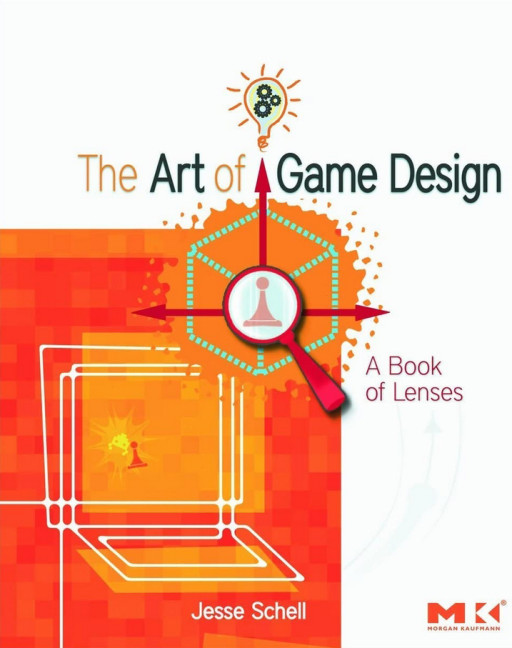
Jesse Schnell is a professor at the Entertainment Technology Center at Carnegie Mellon University. He’s also in the Virtual Reality business, which is at the cutting edge of video game technology nowadays. Have you ever checked out the Game Developers Conference? You really should. And if you have, then you probably already know who this guy is.
By all means, this is a project of passion, you can tell as much when you read this book. I bet this book was Jesse Schnell’s pet project for a long while and now it’s edited and ready for us to read. What can I say? I admire people who take their passions seriously.
Perhaps this isn’t a technical point to make, but I place this one first because it’s the one I like best. I can’t specifically tell you why, but I also know that these things you just click with are usually the result of good designers being put to work. Well, we’re talking about design, right? And to me, this title just clicks.
This book is built on a multi-perspective principle, thus the “lenses” in the title. It draws inspiration from a lot of seemingly unrelated topics. It also uses these many “lenses” to make different points about the same subject. I’m not even kidding when I say this thing quotes both King Solomon and Confucius at times. I think creativity is a main part of what makes good design, Jesse Schnell apparently agrees.
So is this book rambling and unfocused? No, on the contrary. It gives me a constant sense of awe and direction. It’s not just a book about video game design, it’s honestly a book about design in general, and it’s a damn good one at that.
Maybe it’s just the format, maybe I personally click with the author, but I just can’t put this one down and this is probably the one I find most memorable. Again, that’s good design at work. And it’s why I think it deserves the top position, there’s a certainty in the words of Jesse Schnell combined with an iconoclastic irreverence that just really works for me.
- A deep examination of the principles of design itself
- A wealth of inspiration and perspective to refine your design understanding
- Well-written and thought-provoking all throughout

